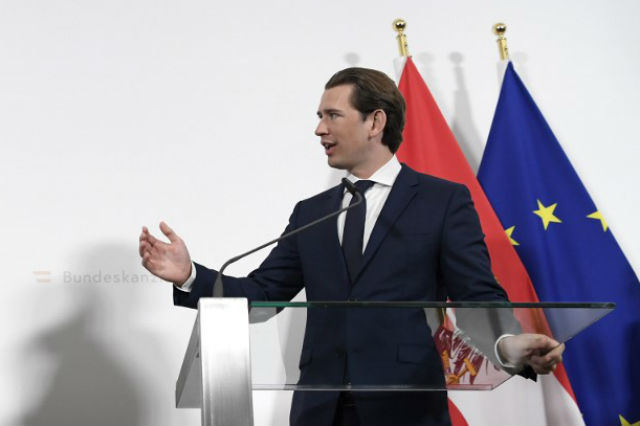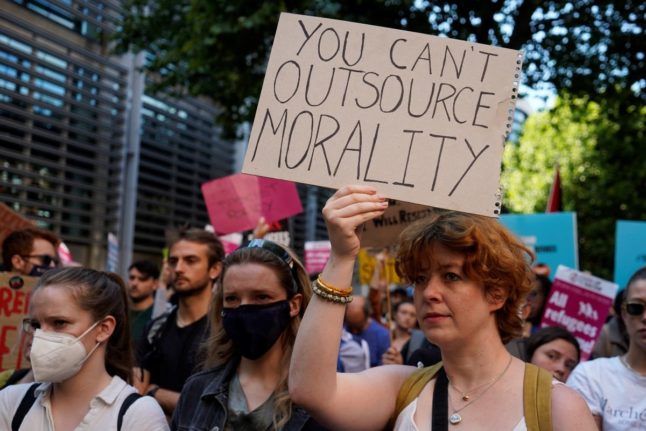EUROPEAN UNION
Austria’s Kurz wants renegotiation of EU’s Lisbon treaty
Austrian Chancellor Sebastian Kurz called on Friday for the renegotiation of the European Union's Lisbon Treaty and tough action on countries letting migrants transit ahead of key EU elections this month.
Published: 4 May 2019 11:35 CEST

Austrian Chancellor Sebastian Kurz said he believed the Lisbon Treaty is now out of date. Photo: Hans Klaus Techt/APA/AFP
Kurz's centre-right People's Party (OeVP) is stepping up its campaign for the European Parliament elections and he gave a pool interview to several Austrian newspapers.
“A new treaty is needed with clearer sanctions for members who run up debts, punishments for countries that wave through illegal migrants without registering them, as well as tough consequences for breaches of the rule of law and liberal democracy,” Kurz said.
He said that “much had changed” since the 2007 Lisbon Treaty, pointing to the eurozone and migration crises and Brexit.
A treaty renegotiation would require unanimous consent from all EU member states. In the same interview, Kurz expressed scepticism over any cooperation between the centre-right European People's Party (EPP) — to which the OeVP belongs — and parties further to the right in the European Parliament.
“We don't want to hand over the EU to the extreme fringes on the left or right, we need instead a strong politics of the centre,” he said.
At home the OeVP has been in coalition with the far-right Freedom Party (FPOe) since elections in late 2017 but in recent weeks Kurz has come under increasing pressure to condemn the actions of some FPOe members.
Kurz also said he was in favour of ending the practice of MEPs shuttling between Strasbourg and Brussels and called for the European Parliament to be permanently based in the Belgian capital.
France has always opposed giving up its European Parliament site in Strasbourg but referring to French President Emmanuel Macron and his own reform programme for Europe, Kurz said: “He who demands reforms must also be
prepared to make them where it hurts.”
The Austrian chancellor wants to reduce the size of the European Commission and ending the practice whereby each member state automatically receives a commissioner.
The posts should be apportioned on a rotating basis, he said, adding that currently “there are more commissioners than areas of responsibility”.
While supporting a renewed focus for the EU on security and foreign policy, Kurz said he was against the prospect of relinquishing command responsibilities to a common European army.
As for the next European Commission which will be appointed later this year, Kurz said “a generational change at the top” was needed, “with a new policy direction”.
Url copied to clipboard!


 Please whitelist us to continue reading.
Please whitelist us to continue reading.